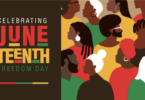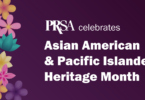In recent years, there have been a string of terrorist attacks that claimed hundreds of innocent lives in America and abroad. We remember the November terrorist attack in Paris, France, where gunmen opened fire at a concert hall, major stadium, and restaurants and bars, leaving 130 dead, and hundreds wounded. Most recently, another deadly attack was orchestrated on innocent citizens celebrating Bastille Day, and equally horrific events occur in other parts of the world all of the time.
Our country is no stranger to terrorism and tragedy. The two recent nightclub mass shootings in Fort Myers and Orlando, Florida, the tragic terrorist attacks of September 11, 2001, a number of other horrific mass shootings, along with the increased incidents of tragic deaths among African Americans, as well as police officers, leave us with feelings of helplessness, anger and fear. Despite our continuing protests, lighting of candles, prayer vigils and calls for stricter gun control laws and heightened security of our nation, we may sometimes feel as though we are fighting a losing battle. This stress takes a toll.
Domestic and international terrorism, in all its manifestations, can cause extreme anxiety, feelings of helplessness, and xenophobic and racial mistrust. Nevertheless, we are expected to compartmentalize our feelings, go to work each day with a sunny disposition, and be productive employees and engaging team players, right?
According to the American Psychological Association:
“After a terrorist attack, many people are impacted. People who have experienced the trauma fall into the following categories:
- Survivors of past traumatic events (e.g., refugees of wars, terrorism or torture, and survivors of domestic violence, child abuse or street crime). These individuals may have a heightened sense of vulnerability.
- People who personally witnessed or were victims of the terrorist attack.
- People who experience traumatization from learning of relatives, friends and acquaintances who were subject to the violence, or from exposure to repeated media accounts of the trauma.”
PRSA leadership has made the decision to address these issues in order to provide our membership with ways to cope, and offer messages of understanding, and healing. Rochelle L. Ford, Ph.D., APR, tenured professor and the new chair of the Public Relations Department in the Newhouse School of Public Communications at Syracuse University, and Fellow, PRSA National Board of Directors, states, “The level of tension and tense emotions are having an effect on the psyche of us all… PRSA encourages its members and other professional communicators to encourage their clients and organizations to provide outlets for people to heal, to promote peace, to encourage understanding of the struggles we face.”
Mark McClennan, APR, 2016 PRSA Board Chair, will host a series of Safe Space Conversations within his company, MSLGROUP, that will provide a time for sharing experience and reflection in a safe, structured environment, and share practical advice and resources for staff.
As public relations practitioners, we serve clients who are members of the multicultural society in which we live and work. It is our professional imperative to learn about our clients, understand and respect their needs, remain open to their perspectives and feelings, and deliver informed and culturally intuitive public relations counsel. By the same token, we need to be able acknowledge within ourselves any racial or cultural misgivings that we may have, explore these feelings, and work to maintain a racially and culturally inclusive work ethic.
For more than a decade, PRSA’s leaders have brought attention to the issue of diversity in the public relations profession. The PRSA Diversity and Inclusion Committee’s mission is to make PRSA more inclusive and welcoming by developing programming on relevant topics, www.prsay.prsa.org blog posts, webinars, Twitter Chats, and more. The committee works closely with the PRSA Foundation, which “fuels the passion, dreams and futures of a diverse range of ambitious and promising students by supporting programs that attract them to public relations and develop their capacity to bring the PR perspective to the organizations they serve, and to society.”
Remember, in times of uncertainty, don’t go it alone. Seek peace, reach out to others, open up a dialogue, and explore options for help.
Sheila Tartaglia is chief operating officer of Tartaglia Communications, Chair of PRSA’s Diversity and Inclusion Committee, and Member, Board of Directors of PRSA NJ.







